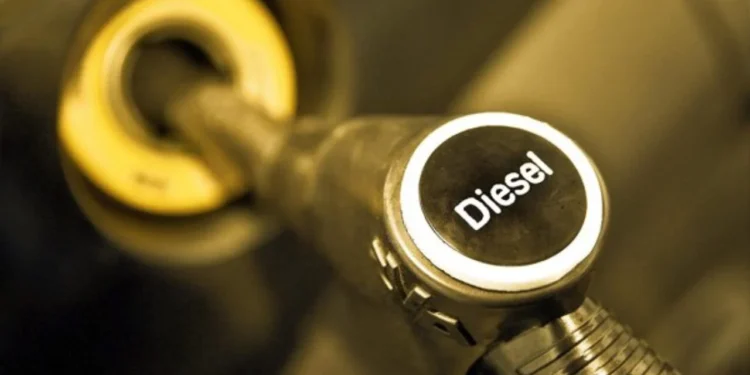The Independent Petroleum Marketers Association of Nigeria (IPMAN) anticipates a potential reduction in the price of diesel to approximately N700 per litre following the recent price adjustment by the Dangote refinery.
Hammed Fashola, the National Vice President of IPMAN, expressed this expectation on Wednesday, acknowledging Dangote refinery’s move to slash the price of diesel from over N1,200 to N1,000. In an interview, Fashola underscored the industry’s optimism for further price reductions.
Attributing the potential decline in diesel prices to the strengthening of the naira against the dollar, Fashola highlighted the favorable exchange rate, nearing N1,000 on the black market. He emphasized that local production eliminates challenges such as shipment costs, customs duties, and taxes, which previously contributed to higher prices.
Fashola remarked, “We marketers, we are expecting diesel to come to like N700 per litre; that is our prayer and at that level, it will be a blessing to everybody.”
He reiterated the industry’s support for Dangote and expressed gratitude for the price reduction, while emphasizing the desire for more affordable fuel to benefit citizens across the nation.
Dangote refinery initiated diesel sales approximately two weeks ago, initially reducing the price from N1,600/litre to N1,250/litre. Last Tuesday, the refinery announced a further reduction, setting the price at N1,000/litre.
Economist Femi Oladele praised the price cut, anticipating significant drops in production costs and subsequent impacts on product and service costs. He highlighted potential benefits such as the revival of businesses and increased economic activity, along with savings in foreign exchange reserves.
Jonathan Thomas, an analyst at Sankore Investment Limited, emphasized the broader economic implications of fuel prices, noting their influence on the general price level of goods and services. He explained that lower diesel prices could positively affect production costs, transportation expenses, and overall economic activities.
The ongoing price adjustments by the Dangote refinery signal a potential shift in Nigeria’s fuel pricing landscape, with industry stakeholders optimistic about the positive impact on both businesses and consumers alike.









